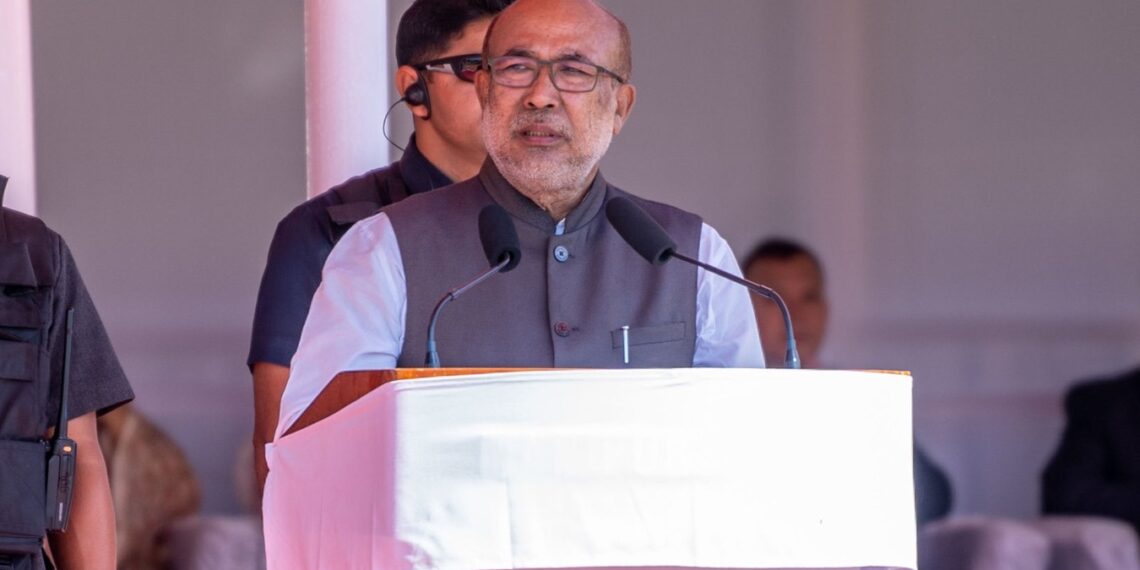IMPHAL: Manipur’s Chief Minister N. Biren Singh has declared his government’s intention to implement The Manipur Hill Areas (Acquisition of Chiefs’ Rights) Act, 1967, aiming to abolish the longstanding tradition of hereditary chieftainship in hill regions.
The Chief Minister claimed that hereditary chieftainship has contributed to worsening issues of influx and conflict, prompting a renewed emphasis on the implementation of the 1967 Act.
He pointed out in the Assembly that despite the Act being passed by the state assembly on January 10, 1967 with President’s assent on January 10, 1967, it hasn’t been implemented due to resistance from the Kuki community, which practises the tradition.
This resistance has prevented the state government from abolishing the chieftainship system, unlike Mizoram, which successfully implemented a similar act back when it was part of Assam, he said.
He further asserted that the initiative is in line with broader endeavours to address the crisis, encompassing humanitarian aid for displaced individuals and the deployment of security forces to ensure stability.
Previously on March 4, the Chief Minister had informed the House that 6,487 refugees, including women and children, who fled to Manipur after the Military junta seized power, are in shelter camps and it has been ensured that they don’t get mixed with the local people.
Earlier in Septmber 2023, in a bid to resolve the then four-month-old ethnic conflict, the state had proposed to the Centre that the existing autonomous hill councils be given more autonomy.
Stating their opposition to the demand of “separate administration” made by Kukis since the onset of violence on May 3, the Biren Singh-government had proposed this as an alternative.
The Kuki community, however, had opposed the move, claiming hill councils have been ineffective.















